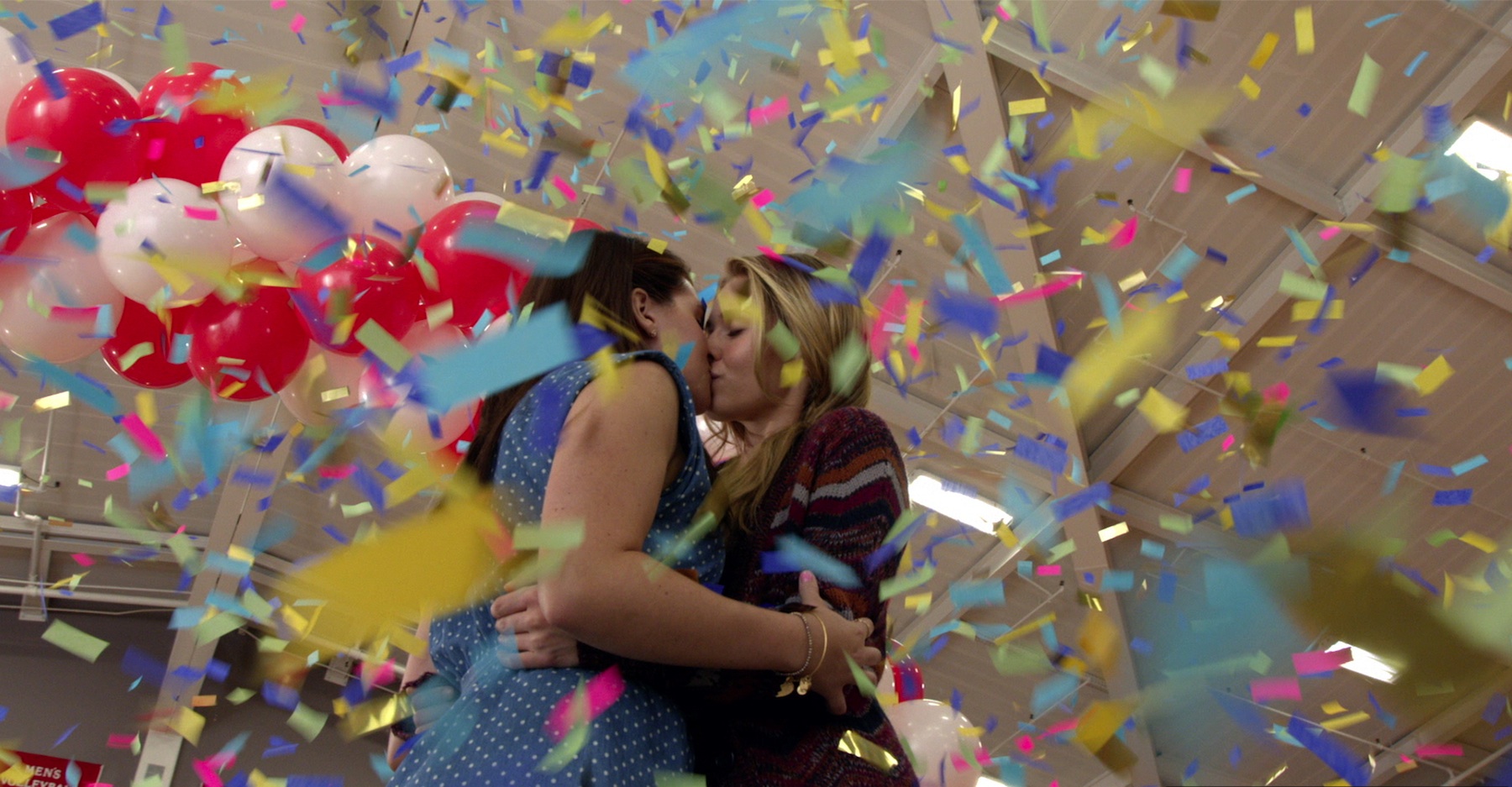
Coming out of the closet can be a real popularity boost. That’s the story MTV is selling, at least, with its upcoming show Faking It, premiering April 22 — and the network isn’t the first to make that leap.
Faking It, the first trailer for which debuted today on BuzzFeed, is about two high-school best friends who pose as a lesbian couple in order to augment their social standing. As the preview shows, the plot gets underway when a popular gay classmate decides to liberate them from the closet, sure that they’re hiding their true feelings and confident that he can help them by getting them voted as homecoming queens. Though the girls aren’t actually gay, they decide to play along in order to win those tiaras.
If that sounds familiar — and looks familiar — that might be because Michael J. Willett, the actor who plays the boy who sets that plot in motion, was recently in a movie that took a similar view.
In G.B.F., which showed at festivals last year and received a theatrical release in January, a character undergoes a similar popularity swing. The movie — the title of which stands for “gay best friend” — is about two friends, both of whom actually are gay (and one of whom is played by Willett), who want to be popular and discover via an accidental outing that being the first out student at their school could do the trick. That’s especially true after the popular girls decide that they need a fashionable gay accessory to complete their entourage and that they’re willing to fight over their school’s potential candidates for that position. Though G.B.F.‘s characters aren’t pretending, the popularity factor is the same: being gay can make a kid stand out, in a good way.
Faking It showrunner Carter Covington told BuzzFeed that he initially found the premise of Faking It offensive, but changed his mind when he decided that the idea was plausible in a modern high school, where having your sexuality be your “thing” can help rather than hinder. He also told The Hollywood Reporter in January that he didn’t think the show would be controversial at all among the demographic for which it’s intended.
But as Covington, who has worked with the Trevor Project, surely knows, not every teen who comes out of the closet (for real or for pretend) ends up with a homecoming crown on his or her head. In fact, the most common news narrative about such stories ends in the opposite fashion. Based on a 2009 survey, the Centers for Disease Control report that 80% of LGBT middle- and high-school students had been verbally harassed at school due to their sexual orientation; though the state of things has evolved quickly over the last few years, an issue of the American Journal of Public Health from less than a year ago reiterated that bullying was “prevalent against youths perceived as gay, lesbian or bisexual.”
Then again, even if seeing newly out teens so lavishly rewarded for their honesty (or, in the case of Faking It, dishonesty) may not be a reflection of the most common experience for real-life gay teens, it may not be a bad thing to depict it, anyway. MTV has already proved that its shows affect actual teens, as 16 and Pregnant and Teen Mom are credited with helping to bring down the teen birth rate. Maybe Faking It will contribute to a world where “it” won’t be associated with bullying — no faking required.
More Must-Reads from TIME
- Donald Trump Is TIME's 2024 Person of the Year
- Why We Chose Trump as Person of the Year
- Is Intermittent Fasting Good or Bad for You?
- The 100 Must-Read Books of 2024
- The 20 Best Christmas TV Episodes
- Column: If Optimism Feels Ridiculous Now, Try Hope
- The Future of Climate Action Is Trade Policy
- Merle Bombardieri Is Helping People Make the Baby Decision
Write to Lily Rothman at lily.rothman@time.com